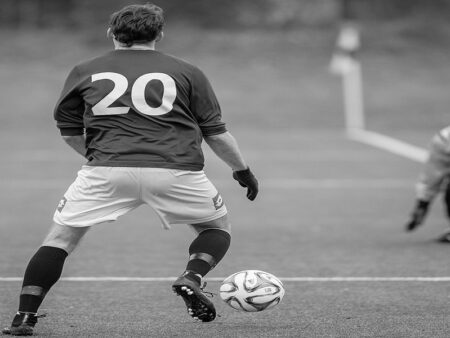Selected editorial offices and experts from 70 countries of all the football continents took part in the annual election for The World’s Best Club Coach 2013, the 18th time it has been carried out by the IFFHS. After the domination in the last ten years of the leaders José Mourinho (winner 4 times), Josep Guardiola (winner twice) and Alex Ferguson (winner twice), it is not a surprise to see the great success for 2013 of Josef “Jupp” Heynckes, the coach of the greatest team of the year FC Bayern München, who won the UEFA Champions League, the German Championship, the German Cup in the same year!
Josef “Jupp” Heynckes is the world’s best Club Coach 2013

Jupp Heynckes (68 years old) was voted The World’s Best Club Coach with a lead of more than 100 points ahead of the second German coach, Jürgen Klopp (46 years old) from Borussia Dortmund. He conducted his team in the last two years on the Top of Europe and he shows also the current attraction of the German football. The third coach is Diego Simeone (43 years old), who leads Club Atlético de Madrid to the Top in Spain and in Europe. The man from Argentina was player (1994-1997) and then became a coach since 2011 in the club of the “Colchoneros”, bringing success with his power. Klopp and Simeone lead the new generation of coaches with Josep Guardiola . Alex Ferguson won a last championship title with Man U and ended a wonderful career.
RANKING 2013:
| 1 | Josef “Jupp” HEYNCKES (FC Bayern München) | 216 points |
| 2 | Jürgen KLOPP (Borussia Dortmund) | 101 points |
| 3 | Diego SIMEONE (Club Atlético de Madrid) | 61 points |
| 4 | Alex FERGUSON (Manchester United FC) | 33 points |
| 5 | Josep GUARDIOLA (FC Bayern München) | 30 points |
| 6 | Arsène WENGER (Arsenal FC London) | 29 points |
| 7 | José MOURINHO (Real Madrid CF/Chelsea FC London) | 10 points |
| 8 | Antonio CONTE (Juventus Torino FC) | 3 points |
| Jorge JESUS (Sport Lisboa e Benfica ) | 3 points |
The title of „The World's Best Club Coach“ is a subjective one and can vary from year to year based on achievements, the impact on teams managed, and personal attributes such as leadership, tactical acumen, and innovation. Awards like the FIFA Best Men's Coach and the IFFHS World's Best Club Coach of the Year are often used to formally recognize the achievements of outstanding club coaches.
Some of the most widely respected and successful club coaches in the history of the sport include:
- Sir Alex Ferguson – Long-time manager of Manchester United, where he won numerous Premier League titles, FA Cups, and the UEFA Champions League.
- Pep Guardiola – Known for his tenure at FC Barcelona, Bayern Munich, and Manchester City, where he has implemented a distinctive style of play and won numerous league titles and domestic cups, as well as the Champions League with Barcelona.
- Johan Cruyff – As a manager, he is credited with laying the foundation for the modern FC Barcelona during his tenure in the early 1990s, leading to the team's future successes.
- Jose Mourinho – Has won domestic league titles in Portugal, England, Italy, and Spain, as well as the UEFA Champions League with FC Porto and Inter Milan.
- Carlo Ancelotti – Known for managing multiple top European clubs and achieving success in various leagues, as well as winning the Champions League with AC Milan and Real Madrid.
- Zinedine Zidane – Led Real Madrid to three consecutive Champions League titles in his first tenure as head coach.
- Jürgen Klopp – Credited with transforming Borussia Dortmund and Liverpool, leading the latter to both Premier League and Champions League triumphs.
- Marcello Lippi – Guided Juventus and the Italian national team to numerous trophies, including the World Cup with Italy and the Champions League with Juventus.
- Vicente del Bosque – Managed Real Madrid and the Spanish national team, winning club and international titles including the Champions League and the World Cup.
- Rinus Michels – Credited as the father of ‚Total Football,‘ he achieved success with Ajax and Barcelona and later led the Netherlands‘ national team.
These coaches are among many who have made significant contributions to club football around the world. Active coaches continue to shape their legacies with their current clubs, and new talents emerge to challenge the established order. It's important to remember that „best“ can be highly debatable and relies on both the timeframe considered and the criteria used for evaluation. Additionally, across different football cultures and periods, the significance of certain achievements can be weighed differently.












